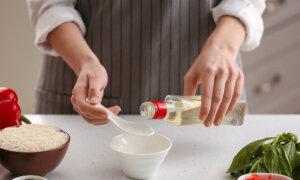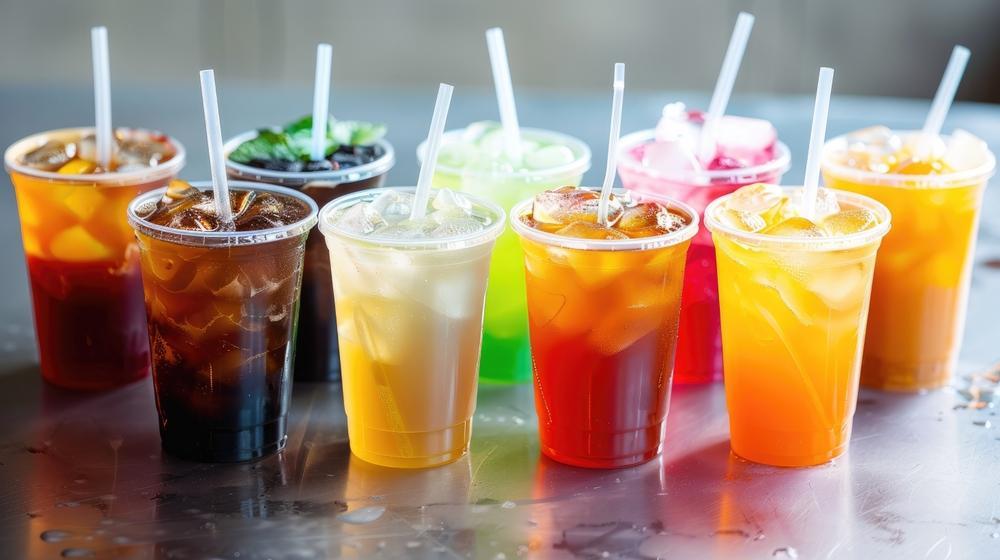“No matter how challenging the work, I never feel tired. Even when filming extends past midnight, my work pace does not change, much to the surprise of my colleagues in their thirties,” Murakami Sachiko, a registered nutritionist in Japan, told Japanese magazine Prime. Ms. Murakami is a visiting professor at Fukuoka Women’s University and a renowned culinary researcher with a publication record exceeding 500 books.
At 82 years old, she still works and has abundant energy, attributing her vitality to the banana vinegar she invented and has been consuming for 47 years. Ms. Murakami told Prime magazine that after regularly drinking diluted banana vinegar and cooking with it, she noticed significant changes in her body. Not only did she no longer feel tired, but her issues with stiff shoulders, feeling cold, and constipation also disappeared.
How to Make Banana Vinegar
Ms. Murakami shared the method for making banana vinegar on her official website. It requires black vinegar, which is made from fermented rice.Ingredients:
- 1 banana
- 6.76 fluid ounces (200 milliliters) black vinegar
- 3.53 ounces (100 grams) brown sugar
- Peel the banana and cut it into small, inch-wide pieces.
- Place the banana and brown sugar in a glass container, then add the black vinegar.
- Leave the container uncovered and microwave it for 30 to 40 seconds.
- Remove the container from the microwave and immediately cover it. Let it sit at room temperature for 12 hours before consuming.
Ms. Murakami mentioned that sugar and vinegar can activate the tricarboxylic acid cycle in the body, converting fat and glucose into energy. This not only aids in weight loss but also helps one quickly recover from fatigue.
One study showed that banana vinegar contains calcium, sodium, zinc, magnesium, and iron. These minerals are beneficial for regulating blood pressure, producing blood cells, modulating sleep, and maintaining nervous system functions.
Restoring Gut Microbiota Imbalance
Dr. Eda Akashi, a renowned Japanese gastroenterologist, expert in gastrointestinal endoscopy, and director of Eda Clinic in Japan, outlined the health benefits of banana vinegar in Prime magazine. He explained that fermentable carbohydrates (FODMAPs) are not easily absorbed in the small intestine, but bananas have relatively low FODMAP content, making them beneficial for gut regulation. Additionally, bananas contain insoluble fiber, which can increase stool bulk and help expel toxins from the gut. They also contain soluble fiber to nourish beneficial bacteria in the gut.Ms. Murakami stated that the gut absorbs nutrients and helps eliminate harmful and unnecessary waste. Therefore, maintaining good gut health is key to overall well-being.
One study showed that the resistant starch found in bananas significantly altered the overall structure of the gut microbiota in obese rats. It increased the abundance of beneficial bacteria, including Akkermansia and Bacteroides, while inhibiting some bacteria that negatively affect lipid metabolism and blood lipid levels. This helps restore gut microbiota balance and protects gut homeostasis.
Preventing Cardiovascular Diseases
Bananas and vinegar both contain potassium, which helps improve cardiovascular health. A study published in the European Heart Journal in 2022 followed 11,267 men and 13,696 women for almost 20 years. The results showed that people with the highest potassium intake had a 13 percent lower risk of cardiovascular disease than those with the lowest intake. Among women, those with the highest potassium intake had an 11 percent lower risk of cardiovascular disease, while men with the highest intake had a 7 percent lower risk.However, banana vinegar has a high potassium content; people with kidney problems should avoid consuming it in large amounts and consult a doctor beforehand.
Alleviating Depression
Dr. Eda pointed out that bananas contain significant amounts of tryptophan and vitamin B6, which aid in the production of serotonin. Serotonin helps stabilize mood.Additionally, vinegar has potential effects on mental health. A study on healthy young adults found that participants who consumed vinegar daily for four consecutive weeks experienced a 20 percent to 34 percent decrease in self-reported depression scores, while those in the control group reported a slight increase.
Another study indicated that vinegar can improve cognitive function by providing exogenous acetate, a metabolite associated with enhanced cognitive abilities. Furthermore, a high-fiber diet can also increase acetate levels in the body through gut fermentation, thereby improving symptoms of depression.
Anti-Aging Benefits
Black vinegar offers numerous health benefits. Dr. Eda said that when the body converts oxygen into adenosine triphosphate—the energy our bodies run on—it produces harmful reactive oxygen species (ROS), contributing to aging and cancer. Vinegar possesses antioxidant properties that can neutralize these ROS. Black vinegar is particularly effective, offering more potent antioxidant effects than ordinary vinegar.Dr. Eda said he believes that banana vinegar merges the health benefits of bananas and black vinegar, making it a true superfood for health and longevity.
Healthful Banana Vinegar Recipes
Ms. Murakami shared several simple and delicious recipes featuring banana vinegar.Banana Vinegar Milk
Pour 3.38 fluid ounces (100 milliliters) of milk into a cup, add 0.53 ounce (15 grams) of banana vinegar, and stir well. You can also add pickled banana or your favorite fruit on top of the drink.Banana Vinegar Salad
Ingredients:- 100 grams (3.53 ounces) lettuce
- 30 grams (1.06 ounces) onion
- 30 grams (1.06 ounces) cucumber
- 40 grams (1.41 ounces) cherry tomatoes
- 30 grams (1.06 ounces) banana vinegar
- 15 grams (0.53 ounces) olive oil
- 1 gram (0.04 ounces) salt
- 1 gram (0.04 ounces) black pepper
- Tear the lettuce into small pieces, thinly slice the onion, cut the cucumber into thin diagonal slices, and halve the cherry tomatoes. Place all the ingredients in a bowl.
- Combine banana vinegar, olive oil, salt, and black pepper in another bowl. Mix well and pour over the ingredients in the first bowl. Toss thoroughly and serve.
When purchasing banana vinegar on the market, it is essential to check for sugar content. Dr. Zenji Makita, director of the AGE Makita Clinic and a diabetes expert in Japan, emphasized in an article on the Nikkan Gendai Healthcare website that even vinegar diluted with water is acidic. Additives such as glucose and honey (labeled in small print) are often added to commercial drinking vinegars to enhance palatability. Therefore, he advises diabetics and those concerned about blood sugar levels to read the ingredient labels of vinegar products carefully.







